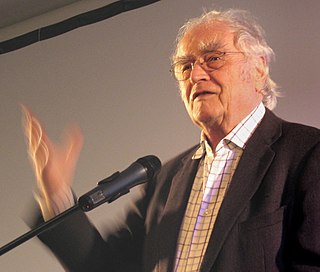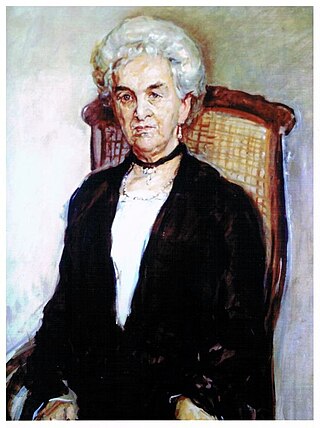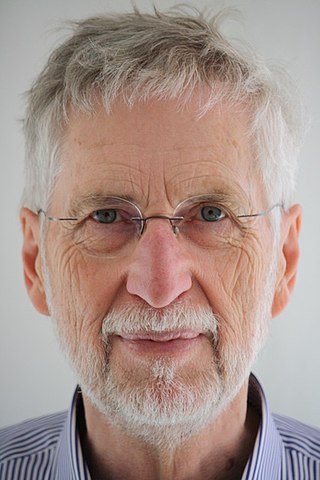Related Research Articles

Martin Walser is a German writer.

Ernst Klee was a German journalist and author. As a writer on Germany's history, he was best known for his exposure and documentation of medical crimes in Nazi Germany, much of which was concerned with the Action T4 or involuntary euthanasia program. He is the author of "The Good Old Days": The Holocaust Through the Eyes of the Perpetrators and Bystanders first published in the English translation in 1991.
Dieter Henrich was a German philosopher. A contemporary thinker in the tradition of German idealism, Henrich is considered "one of the most respected and frequently cited philosophers in Germany today", whose "extensive and highly innovative studies of German Idealism and his systematic analyses of subjectivity have significantly impacted on advanced German philosophical and theological debates."

Arnold Stadler is a German writer, essayist and translator.

Hubert Fichte was a German novelist.

Luise Rinser was a German writer, best known for her novels and short stories.

Birgit Vanderbeke was a German writer.

Ernst Peter Fischer is a German historian of science and science and publicist.

F. W. Bernstein was a German poet, cartoonist, satirist, and academic. He worked for the satirical biweekly pardon. After teaching at schools, he was professor of caricature and comics at the Berlin Academy of the Arts from 1984 to 1999. He was one of the founding members of the Neue Frankfurter Schule, which published the satirical magazine Titanic.

Alissa Walser is a German writer, translator, and artist. She was born in Friedrichshafen on Lake Constance. Her father is the German writer Martin Walser. She is known for her short stories, plays, novels, and translations. Many of her stories include drawings which seem to interrupt them but instead continue the narrative on a different level. She has won a number of German literary prizes.

Ida Boy-Ed was a German writer. A supporter of women's issues, she wrote widely-read books and newspaper articles.

Volker Hage is a retired German journalist, author and literary critic, who has reinvented himself as a novelist.

Marlene Streeruwitz is an Austrian playwright, novelist, poet, and short story writer.

Gerhard Zwerenz was a German writer and politician. From 1994 until 1998 he was a member of the Bundestag for the Party of Democratic Socialism (PDS).
Kurt Honolka was a German musicologist, journalist, and music and theatre critic. He is known as a translator of the librettos of Czech operas into German, such as Smetana's Dalibor and Janáček's Osud.
Fred K. Prieberg was a German musicologist. He was a pioneer in the field of history of music and musicians under the Nazi regime.

Peter Hamm was a German poet, author, journalist, editor, and literary critic. He wrote several documentaries, including ones about Ingeborg Bachmann and Peter Handke. He wrote for the German weekly newspapers Der Spiegel and Die Zeit, among others. From 1964 to 2002, Hamm worked as contributing editor for culture for the broadcaster Bayerischer Rundfunk. He was also a jury member of literary prizes, and critic for a regular literary club of the Swiss television company Schweizer Fernsehen.

Silvia Bovenschen was a German feminist literary critic, author and essayist.
Wolfgang Boetticher was a German musicologist and longtime lecturer at the University of Göttingen.

Royal Highness is a 1909 novel by Thomas Mann. It is Mann's second novel and was written between the summer of 1906 and February 1909. Royal Highness is characterized by its fairytale-like qualities and was modeled after Mann's own romance and marriage to Katia Mann in February 1905. First published in 1909 in Die neue Rundschau, the novel was met with great enthusiasm from the public. However, it was met with a more divided reception from critics.
References
- ↑ "Johanna Walser". Autorinnen und Autoren in Baden-Württemberg (in German). Retrieved 3 May 2023.
- ↑ Osterkamp, Ernst (22 February 1999). "Schneewittchen ohne Apfel". Frankfurter Allgemeine Zeitung (in German). Retrieved 3 May 2023.
- 1 2 Wittstock, Uwe (24 February 2010). "Die Walsers haben das Zeug zur Telenovela". Die Welt (in German). Retrieved 3 May 2023.
- ↑ Wolf, Jürgen (30 November 1998). "Versuch, da zu sein" (in German). Deutschlandfunk . Retrieved 6 May 2023.